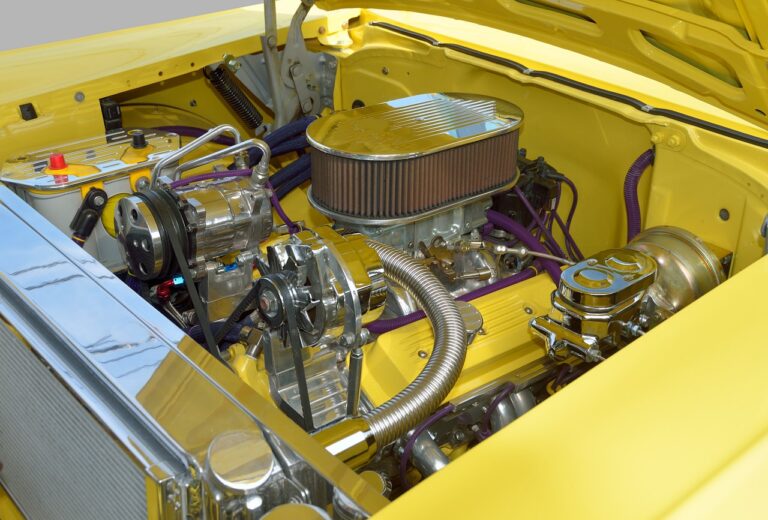Exploring the Potential of AI-Powered Virtual Car Museums for Historical Education
Traditional car museums have long been revered as sanctuaries for automotive enthusiasts, housing a vast collection of classic vehicles that showcase the evolution of automobile technology over the years. These museums provide visitors with a tangible and immersive experience, allowing them to marvel at the craftsmanship and design of iconic cars from different eras.
Over time, traditional car museums have adapted to incorporate interactive exhibits and educational programs to engage visitors of all ages. By offering guided tours, workshops, and special events, these museums have transformed into dynamic spaces that not only preserve automotive history but also serve as hubs for learning and community engagement. The evolution of traditional car museums demonstrates their resilience and commitment to staying relevant in an ever-changing world, ensuring that the legacy of classic cars continues to captivate and inspire generations to come.
As technology advances, traditional car museums have embraced digital displays and virtual tours to enhance the visitor experience.
Many museums now offer hands-on activities such as restoration workshops and driving experiences, allowing visitors to get up close and personal with classic cars.
Collaboration with automotive manufacturers and collectors has enabled traditional car museums to showcase rare and unique vehicles that are not typically seen in public spaces.
The integration of sustainability practices, such as using eco-friendly materials in exhibits and promoting electric vehicle technology, reflects the changing landscape of the automotive industry within these museums.
The Benefits of Virtual Car Museums
Virtual car museums offer a unique and immersive experience for car enthusiasts worldwide. Visitors can explore iconic vehicles from the comfort of their own homes, eliminating the need for travel and allowing access to rare collections that may not be easily accessible in traditional museums. Through high-definition imagery and detailed descriptions, virtual car museums provide a close-up look at classic cars, sports cars, and unique prototypes.
One of the key advantages of virtual car museums is the ability to reach a global audience. People from different parts of the world can access these digital collections at any time, making it convenient for enthusiasts to indulge in their passion for cars regardless of their location. Additionally, virtual museums offer interactive features such as 360-degree views, virtual tours, and audio guides that enhance the overall learning and entertainment experience for visitors.
Utilizing AI Technology in Virtual Car Museums
In the realm of virtual car museums, the integration of AI technology is revolutionizing the way visitors interact with exhibits. Through the utilization of artificial intelligence, virtual car museums can offer personalized experiences to users, catering to their individual interests and preferences. This level of customization enhances user engagement and provides a more immersive and interactive exploration of the showcased automotive collections.
Moreover, AI technology enables virtual car museums to analyze user behavior and feedback in real-time, allowing for continuous improvement and optimization of the virtual environment. By leveraging AI algorithms, these virtual platforms can adapt and adjust content delivery based on user interactions, ensuring a dynamic and responsive museum experience for all visitors. The incorporation of AI in virtual car museums not only enhances the overall user experience but also opens up new possibilities for innovative storytelling and educational opportunities in the realm of automotive history and culture.
What is the main advantage of virtual car museums over traditional car museums?
Virtual car museums offer the opportunity for visitors to explore a wide range of vehicles from the comfort of their own homes, without the limitations of physical space or location.
How can AI technology enhance the virtual car museum experience?
AI technology can provide interactive features such as virtual reality tours, personalized recommendations based on user preferences, and detailed information about each vehicle on display.
Can visitors interact with AI technology in virtual car museums?
Yes, visitors can interact with AI technology through chatbots, voice commands, and virtual assistants to enhance their exploration of the museum and learn more about the vehicles on display.
Are there any limitations to utilizing AI technology in virtual car museums?
While AI technology can enhance the virtual museum experience, it may not fully replicate the in-person experience of visiting a traditional car museum and interacting with physical vehicles.
How can AI technology benefit both visitors and museum curators in a virtual car museum setting?
AI technology can benefit visitors by providing personalized recommendations and interactive features, while also assisting museum curators in managing and organizing the virtual exhibition.







